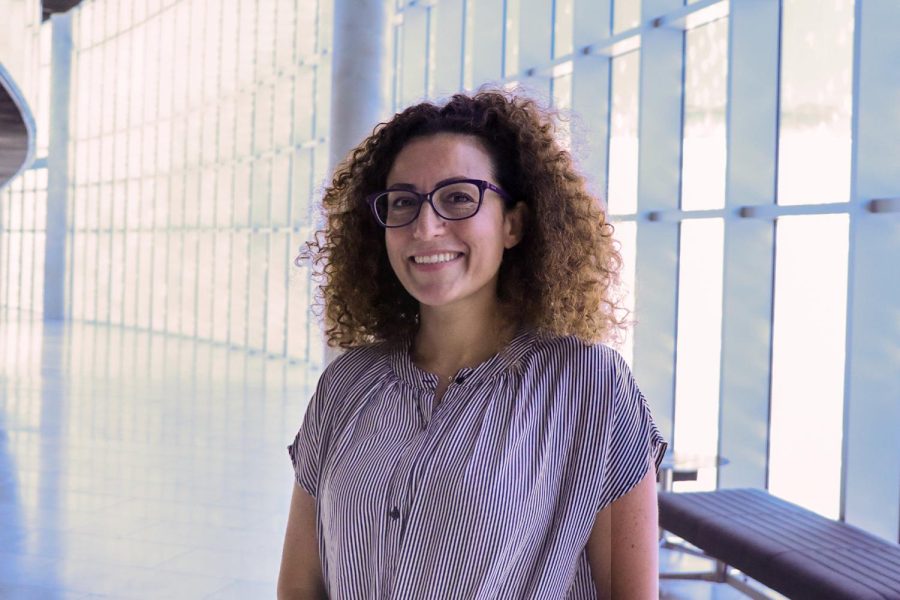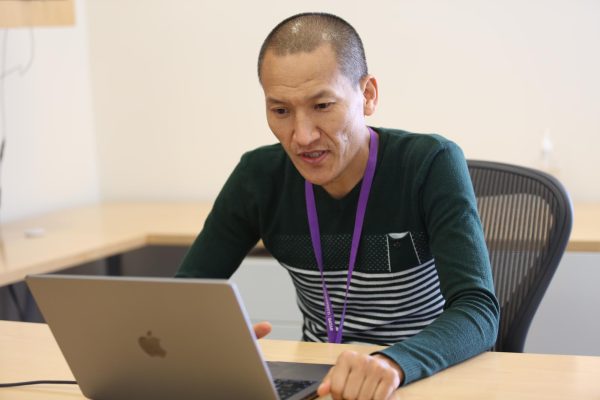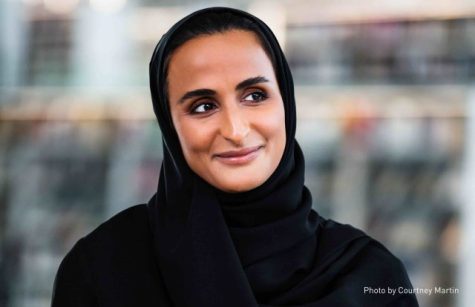Faculty Profile: NU-Q’s new sports and research professor, Claudia Kozman
Growing up in the Dora neighborhood on the outskirts of Beirut, Claudia Kozman was always told that education was the only way forward.
Raised by her blacksmith father and a stay-at-home mother along with two sisters and a brother, the family’s humble origins encouraged her to pursue the highest level of education possible.
“They cared so much about our education and put in so much effort to make sure we got into good schools,” Kozman says of her parents, who labored to send her to private schools that offered need-based scholarships.
Perhaps that is the reason she is passionate about academia, and its rigor while being a sports journalist. A new addition to the NU-Q faculty this fall, assistant professor Kozman is teaching Sports Writing and Reporting.
“I began my career as a sports journalist and began doing research on sports at the same time,” says Kozman, 44. “Because there wasn’t enough study on Lebanon or the Middle East in general, and what was accessible was typically one-dimensional and historical works, I changed the focus of my research to bigger themes concerning the region.”
In “Reconceptualizing Arab Media Research,” published in 2020 in Journalism & Mass Communication Quarterly, a leading journal in the field, Kozman explores methodologies and influences that have significantly impacted the quality and quantity of research productivity in the region.
She has always been fascinated by academic research and attributes being drawn to its rigors to her mother being “tough,” adding she “would not even celebrate our minor triumphs.” This, Kozman says, made her even more driven to give whatever she attempted her absolute best.
Growing up, Kozman always had a natural affinity for anything athletic, and she played football and basketball with a church youth group.
In her first year as a Journalism major at the Lebanese University, Kozman, then 18, secured a paid position in An-Nahar newspaper, where she published articles before starting to work as a television sports reporter aged 20. Her early start in journalism introduced her to a number of prominent figures who had a profound impact on her life. As a result of an interview she conducted with Louisiana State University basketball coach Dale Brown, he paved the way for her to study for a master’s degree in 2005 on scholarship.
“He supported me in a variety of ways, just as he had assisted countless others simply by engaging in discussions,” Kozman recalls. “He taught me the essence of [overcoming] failure in life, which was precisely the opposite of the stoic ideal of perfection I had learned growing up.”
That lesson would prove crucial as she began to face and rebound from the challenges of adult life. “When I started graduate school and faced obstacles in failing that I had never encountered before, this concept was helpful. I realized that the essence of failure is just as significant as all of my previous accomplishments,” she says.
Kozman continued her academic career at Indiana University, earning her Ph.D. in journalism with a concentration in news framing and sourcing in 2015. The intellectual environment and her exposure to prominent journalism academicians prompted her to pursue an academic career.
“You get affected by the people who teach you and the courses you take,” she says. “One of the people who first sparked my interest in the concepts of news framing and sourcing between politicians, reporters, and [government] officials was Timothy Cook, who served as my Ph.D. thesis advisor and is the author of ‘Governing with the News.’”
Kozman was also influenced in developing her focus on framing and sourcing by the scholarship of David Weaver and Steve Reese and credits Claude Cookman with having a significant impact on her perspectives on methods of teaching and learning.
“As journalists write their stories, they inadvertently present the information in a specific manner we call a frame,” she says, adding direct quotes from sources help to emphasize on relevance of a certain person or character. “Together, sources and frames shape the way audiences receive information packaged neatly in a story,” she adds.
How media focused on the coverage of the 2019 protest in Lebanon was the topic of another study Kozman published in 2020 in the International Journal of Press/Politics, one of the most prestigious journals in the field of journalism.
In her free time, Kozman enjoys swimming. “I have been swimming with a coach once a week for the past six years. I’ve been training as though I’m going to the Olympics, but I forget I’m old,” she said with a chuckle.













